Serena Williams’ Trip to Africa Changed Her Life
Serena Williams Trip to Africa Changed Her Life
Change your environment, change your life. In a new interview, Serena Williams, who holds the most major singles, doubles and mixed titles combined amongst all active players, male and female, revealed that a trip to Africa changed her life. She explains,
Being African-American, I’ve always dreamt of going back to Africa. That was just my main goal for as long as I can remember. I gotta get back to Africa. I want to see my roots, where I’m from. I want to see the struggle. I want to see the slave castles. I need to see that journey. I just wouldn’t have felt full if I had never experienced that. And I think it changed me. It changed me to realize how strong I was and to realize that I, through my ancestors, am capable of doing anything. I’m really capable. They endured the toughest, and only the strongest survived. I realized that I was built from this incredible bloodline that many different types of people aren’t built from. The whole journey, and just visiting other places throughout the world as well, has been really educational for me and uplifting.
The Compton native, who also happens to be the highest paid female athlete, also opens up about her experience with racism in the tennis world, embracing her body and not tuning out the opinion of critics. Peep a few more excerpts and flix from the shoot.
On devising a universal path:
I think that my story is universal. I don’t think it’s limited to my country, I don’t think it’s limited to my color, I don’t think it’s limited to my sex. I think it’s universal because I was not born with anything more special than anyone else. I wasn’t born with an extra arm. I wasn’t born super tall. I’m here — a lot of hard work, a lot of dedication, a lot of commitment. And I’ve had a lot of people that didn’t believe in me, so I had to develop a lot of self-belief. At the end of the day, I think it’s a story that everyone in all walks of life can relate to.
On being female athlete for 20 years:
People like Arthur Ashe or Althea Gibson or even Zina Garrison, they had to deal with different things on a different level that I didn’t have to deal with, especially in terms of race and racism. It’s important to not put yourself in a position to be like, I’m better than this person or I’m doing more, I’m this or there’s no one like me. That’s true that there’s no one like me. There’s no one like you, no one like the guy down the street. So I don’t ever think like that. I never thought about any of this. I honestly started out with a tennis racquet and a dream — everything else came out of that.
On dealing with racism in tennis:
I’ve been to Africa a lot, so there are a lot of trips molded together. I’m not sure which trip it was that I met Mandela, but I do remember it really impacting me. We’ve had conversations, but it wasn’t until years later and reading his biography that I really felt like I met this man. It took a minute to click, it didn’t just happen overnight. But I realized that everything that I’m about, the way that I was raised, and everything that I’ve been born to do is all about forgiveness and moving on, and I just felt like it was all about the right time to do it.
On her path to success:
I think that my story is universal. I don’t think it’s limited to my country, I don’t think it’s limited to my color, I don’t think it’s limited to my sex. I think it’s universal because I was not born with anything more special than anyone else. I wasn’t born with an extra arm. I wasn’t born super tall. I’m here — a lot of hard work, a lot of dedication, a lot of commitment. And I’ve had a lot of people that didn’t believe in me, so I had to develop a lot of self-belief. At the end of the day, I think it’s a story that everyone in all walks of life can relate to.
On her upbringing:
My parents always told me, “In order to be the best you can be, you have to know your history.” History can create a lot of knowledge. All my family, we wanted to learn about where we came from. Being black in America, you don’t really know where you come from. You don’t really know your last name. You don’t really know a lot of things. So for me it was always important to visit that. And we were just raised to love one another and to put up with one another and to have intense affection for each other and protect each other. Throughout our lives, usually most tournaments I go to my family comes too. They’re always around. They’re always there.
On her work ethic:
I think I developed something really intense in my heart and in my mind. Was it innate? I can’t answer that. All I know is that I do work very, very hard. The other day I was on the court for four hours with my coach and everyone was like, “OK, are you crazy?” No, I’m just really intense. I work really hard. As long as you’re willing to do hard work, you’ll have everything.
On why she learned French:
It’s so funny because I was at the Olympic Village the other day, and I was talking to this African athlete. A lot of Africans speak French, and I noticed that his English wasn’t great, so I started speaking French to him. He stopped and was like, “You speak French?” and I was like, “Yeah.” And he said, “But you’re American…” And I’m like, “Yeah.” And he’s like, “But no Americans speak other languages.” And I was like, “Yeah, that’s true!”
Venus is really fluent, much more so than me. One of the reasons I learned French was I wanted to win the French Open, and I wanted to speak French when I won. The second was because, most African countries, the main language outside of their local language is French or English. So I figured: I know English, maybe I can learn French.
By –@OctaviaNakia


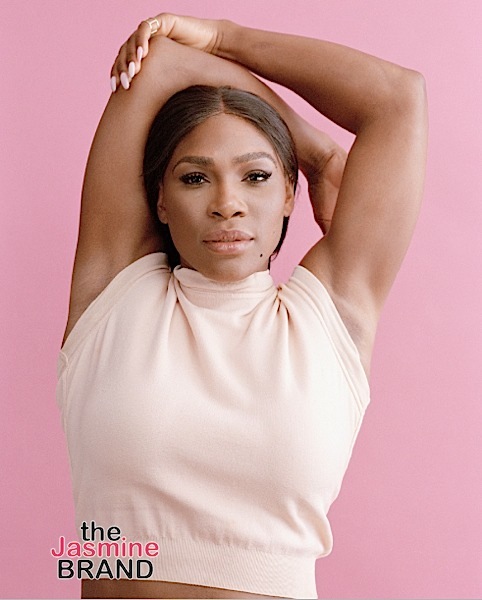







 Previous Article
Previous Article Next Article
Next Article![Watch Keke Palmer Sing the National Anthem [VIDEO]](https://thejasminebrand.com/wp-content/uploads/2016/02/Screen-Shot-2016-02-21-at-12.13.06-PM.jpg) Watch Keke Palmer Sing the National Anthem [VIDEO]
Watch Keke Palmer Sing the National Anthem [VIDEO]  Erica Campbell Hints That ‘Someone’ Cheated In Her Marriage Too
Erica Campbell Hints That ‘Someone’ Cheated In Her Marriage Too 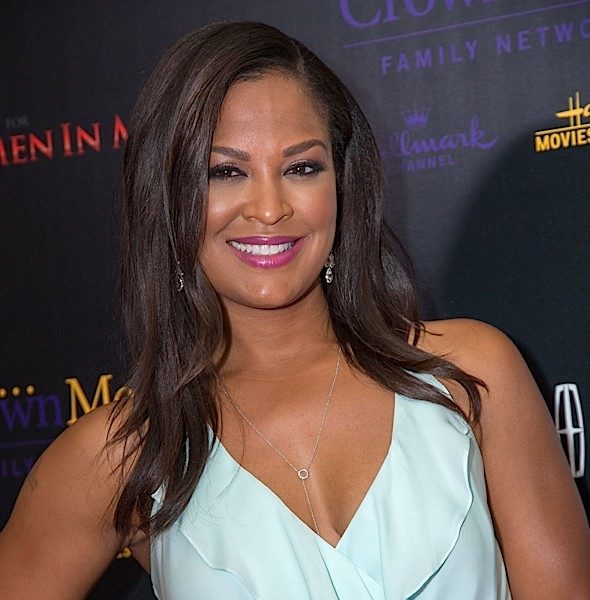 Laila Ali Believes “All Lives Matter”, Doesn’t Want To Lose Sponsorship Deals
Laila Ali Believes “All Lives Matter”, Doesn’t Want To Lose Sponsorship Deals 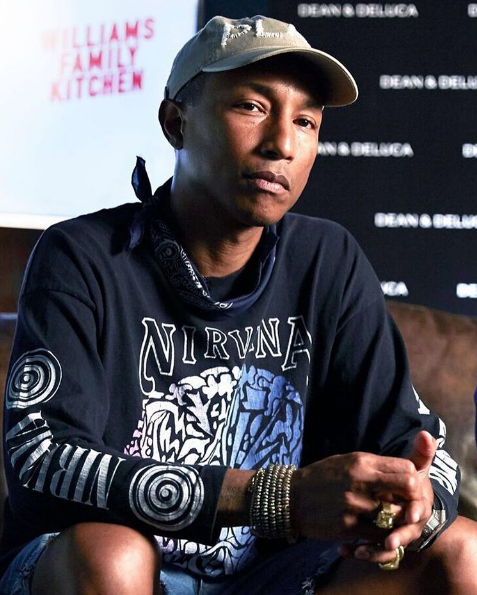 Pharrell Announces ‘The Williams Family Kitchen’ Line
Pharrell Announces ‘The Williams Family Kitchen’ Line 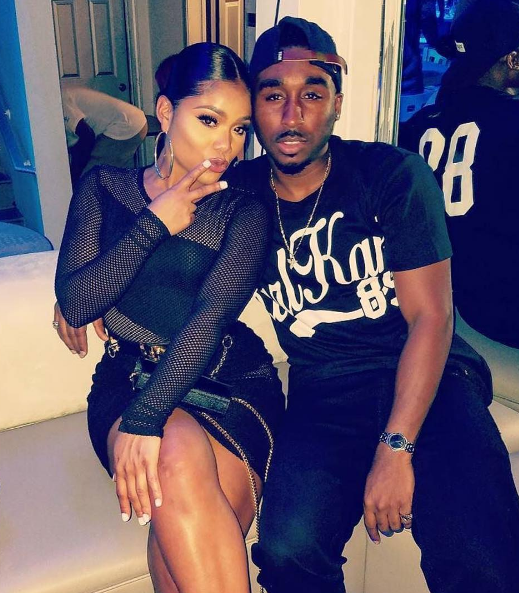 EXCLUSIVE: Erica Pinkett On Leaving “Love & Hip Hop Atlanta” & Landing “All Eyez On ME” Role + Movie Backlash (INTERVIEW)
EXCLUSIVE: Erica Pinkett On Leaving “Love & Hip Hop Atlanta” & Landing “All Eyez On ME” Role + Movie Backlash (INTERVIEW) ![Raheem DeVaughn Releases ‘Black Ice Cream’ Video [WATCH]](https://thejasminebrand.com/wp-content/uploads/2015/09/Screen-Shot-2015-09-02-at-8.56.19-PM.jpg) Raheem DeVaughn Releases ‘Black Ice Cream’ Video [WATCH]
Raheem DeVaughn Releases ‘Black Ice Cream’ Video [WATCH] ![[Thug Life] Nelly Arrested & Jailed: Officers Find Drugs & Handguns on Bus](https://thejasminebrand.com/wp-content/uploads/2015/04/Nelly-Arrested-Jailed-Drugs-Handguns-on-Bus-the-jasmine-brand.jpg) [Thug Life] Nelly Arrested & Jailed: Officers Find Drugs & Handguns on Bus
[Thug Life] Nelly Arrested & Jailed: Officers Find Drugs & Handguns on Bus 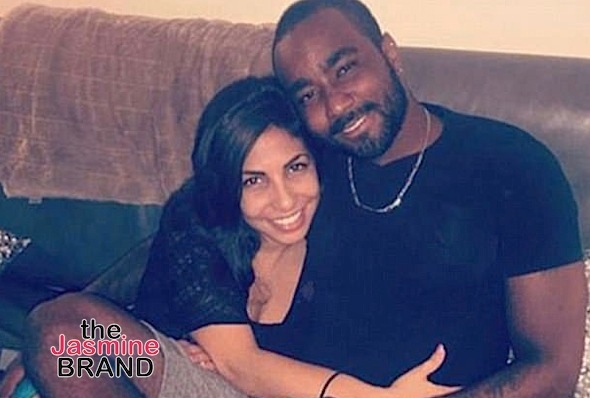 Nick Gordon’s Girlfriend Drops Charges After Claiming He Beat & Punched Her For Hours
Nick Gordon’s Girlfriend Drops Charges After Claiming He Beat & Punched Her For Hours